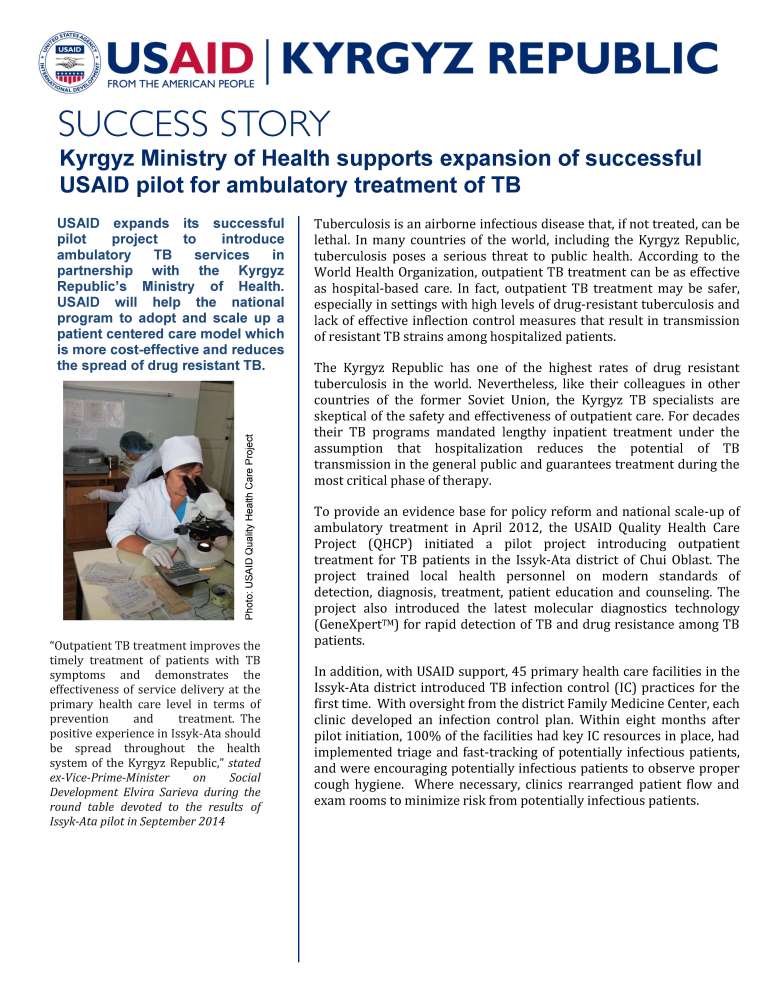Speeches Shim
Duration:
September 2010 - September 2015
Implementing Partner:
Abt Associates Inc.
Key Partners:
Ministries of Health of Central Asian Republics
Activity Locations:
Central Asian Republics
Activity Overview
The USAID Quality Health Care Project (QHCP) is a five-year program to improve the health status of Central Asians by building the capacity of public health systems, institutionalizing quality improvement methodologies at all levels of health services management, and empowering communities to respond to health needs. The Quality Project provides technical assistance, training, equipment and commodities to improve management, financing, and implementation of health services related to tuberculosis, HIV/AIDS, and maternal and child health services and other public health threats.
Impact Areas and Achievements
The Quality Project implements pioneering initiatives to improve TB services in Kyrgyz Republic. QHCP implements a comprehensive model of ambulatory TB services, focusing on early detection and treatment using GeneXpert®. The project also updated TB Infection Control measures and clinical protocols, which were approved for scaling up within Kyrgyz Republic’s National TB Program. QHCP assisted the Government of the Kyrgyz Republic with the reforms of financing mechanisms for cost effective and patient friendly TB services. The project has improved laboratory services by introducing and supporting nationwide scaling up of External Quality Assurance (EQA) and Quality Management System (QMS) for improving quality of laboratory performance that will help the laboratories to move towards accreditation in line with international standards. QHCP has contributed to develop and implement Advocacy Communication Social Mobilization (ACSM) strategy for TB in the country.
In the Kyrgyz Republic QCHP has provided technical assistance to improve policy and practices for HIV prevention and treatment. QHCP also helped develop and implement clinical guidelines and protocols according to international recommendations on comprehensive services for key populations affected by HIV. The Project contributed to improvement of interaction and partnership between health care workers and civil society in provision of medical and social services. QCHP also works to reduce stigma and discrimination for people living with HIV.
Project updates
Patients help each other complete TB treatment ![]() (pdf - 352k)
(pdf - 352k)
USAID improves quality of TB laboratory services ![]() (pdf - 267k)
(pdf - 267k)




Comment
Make a general inquiry or suggest an improvement.